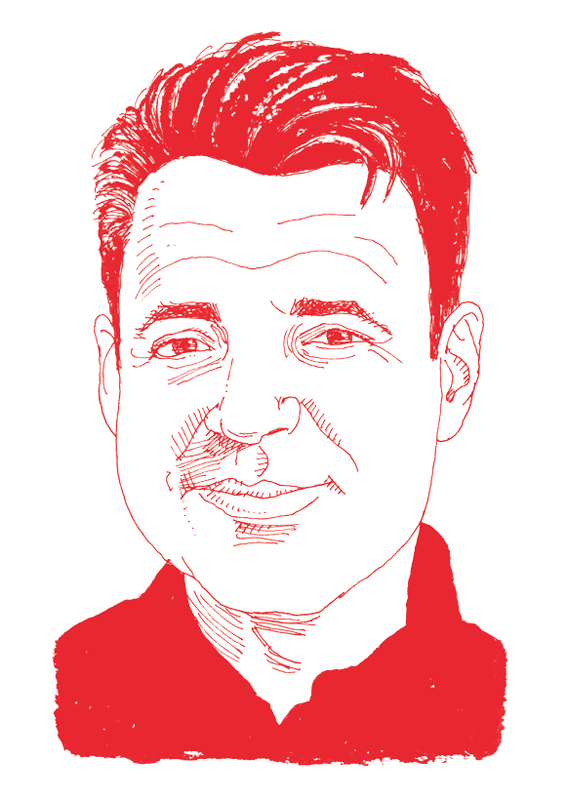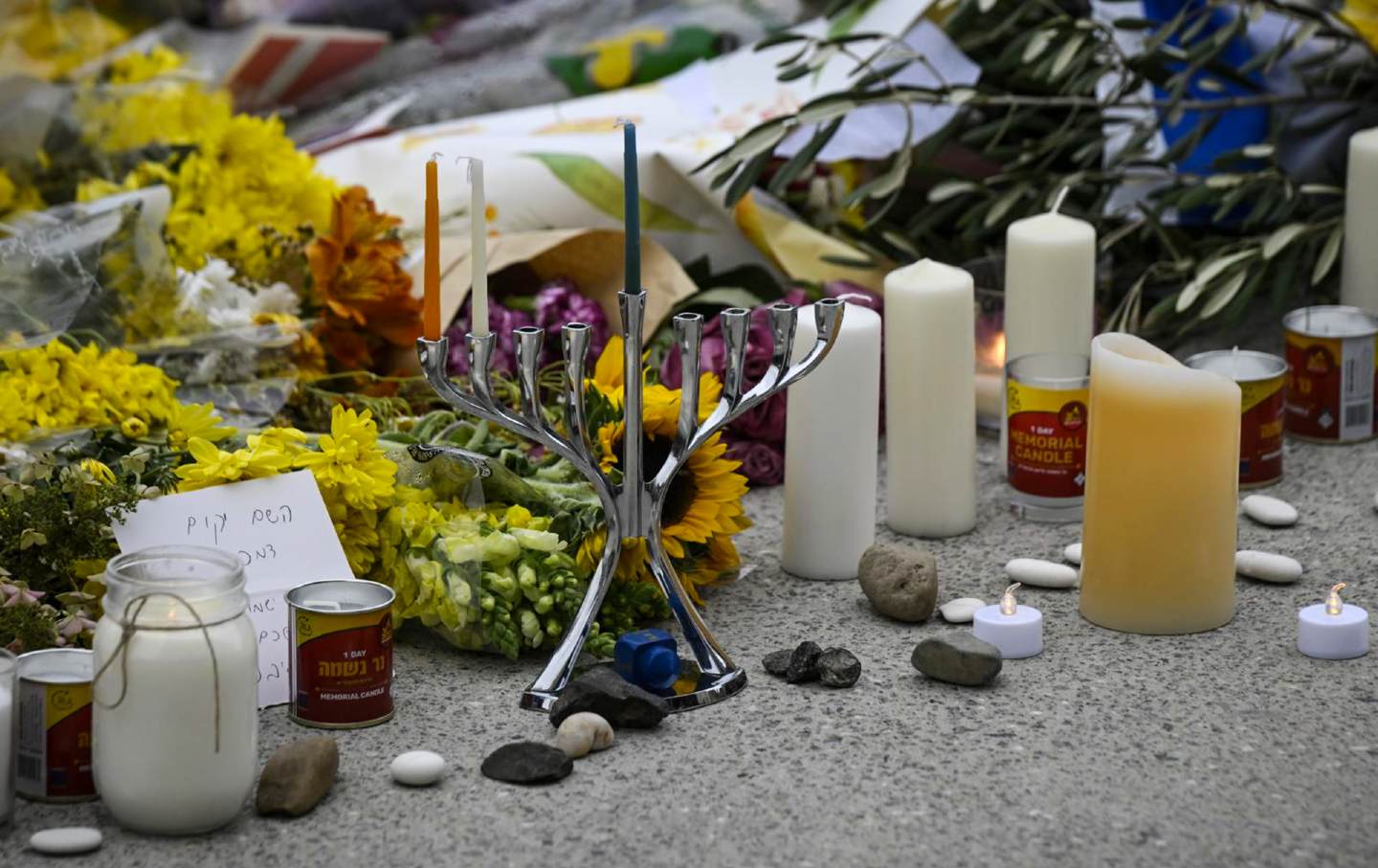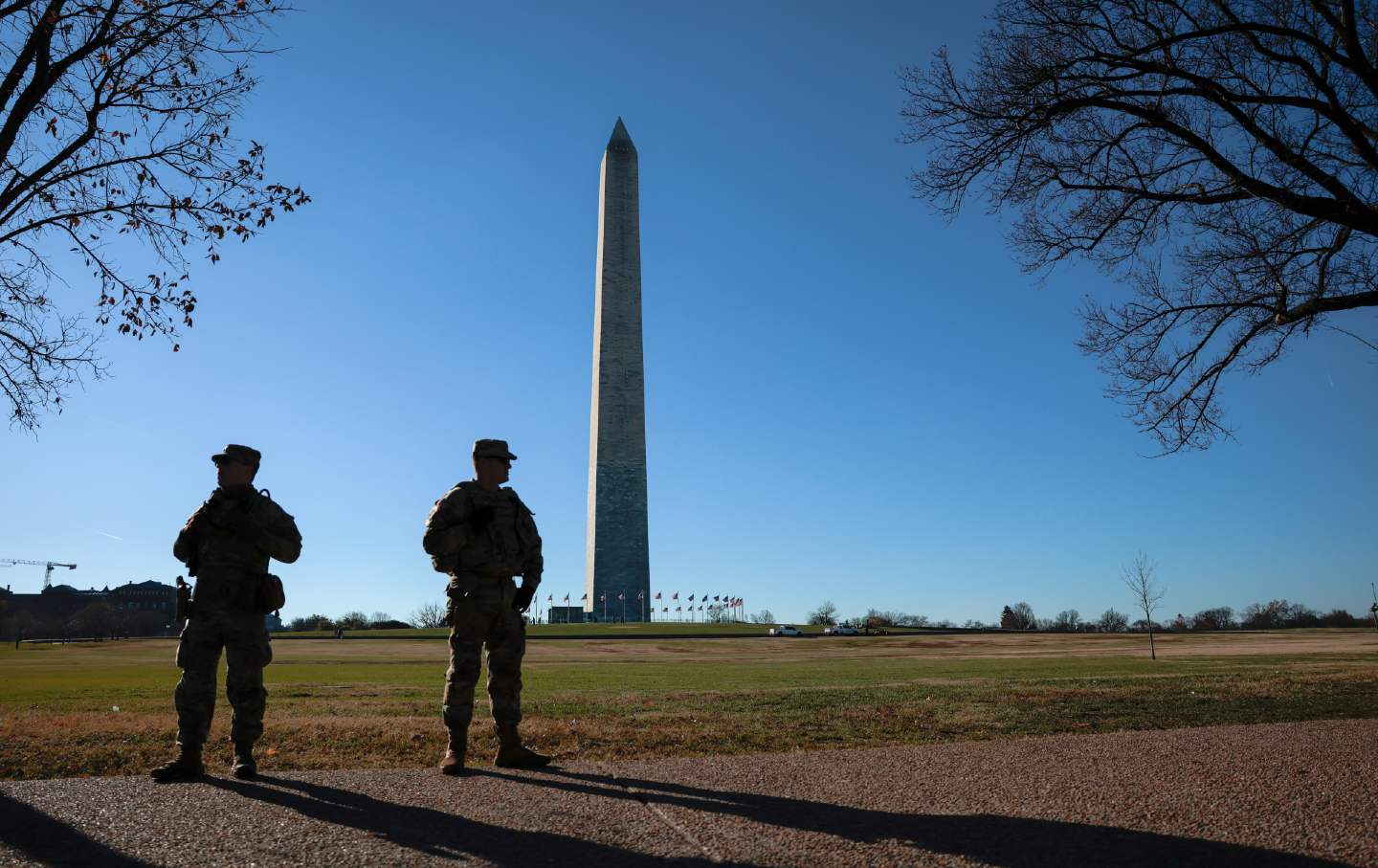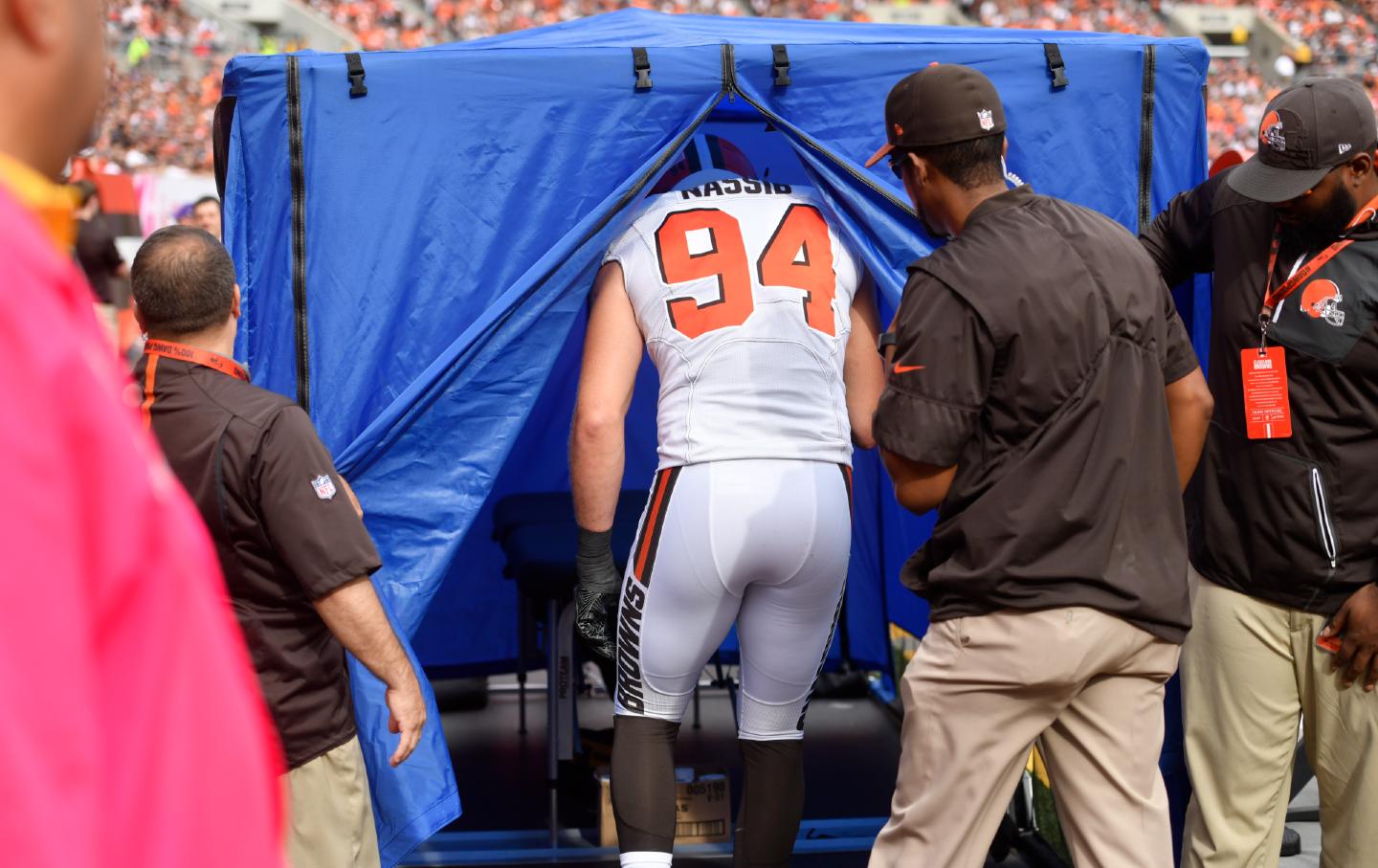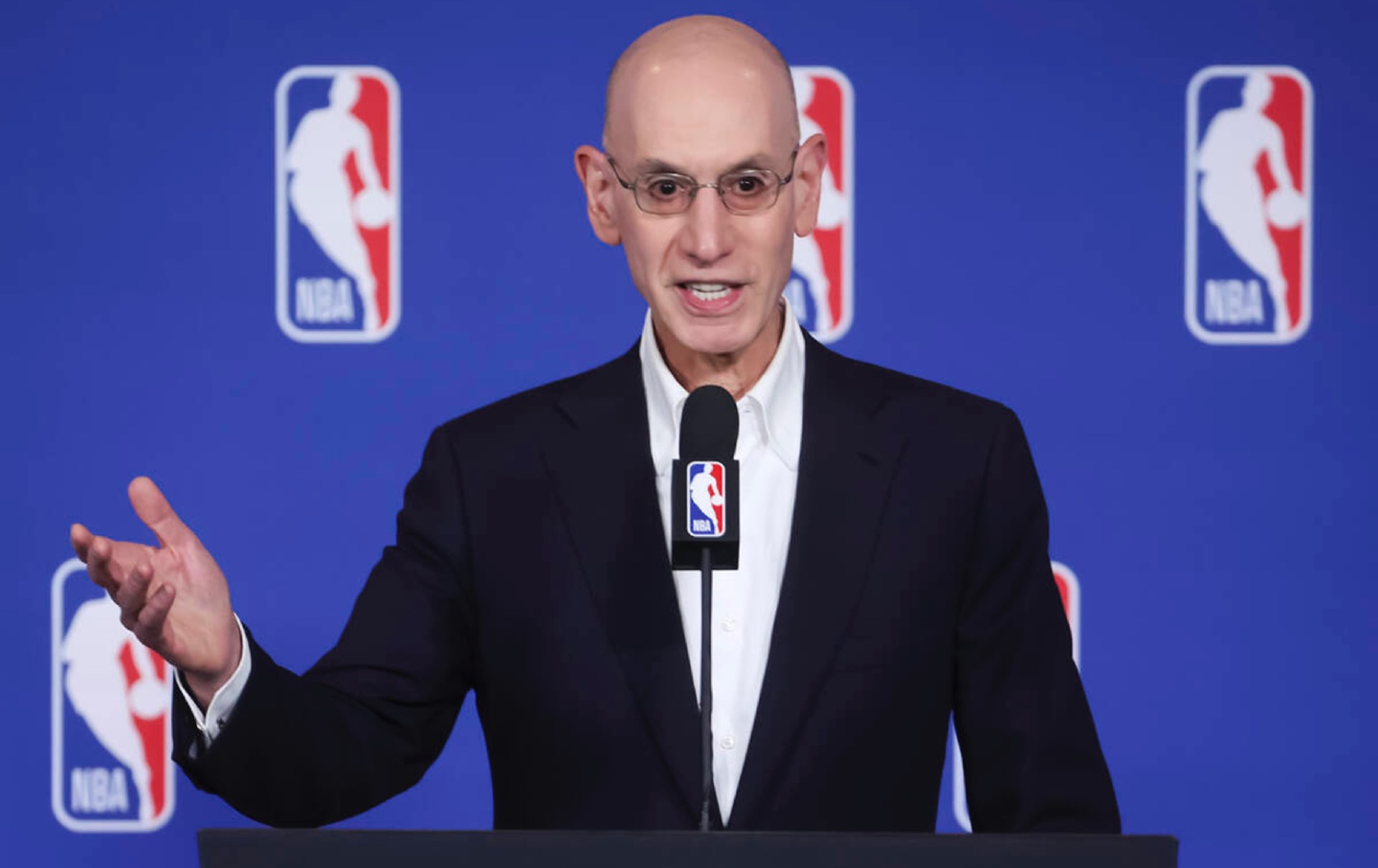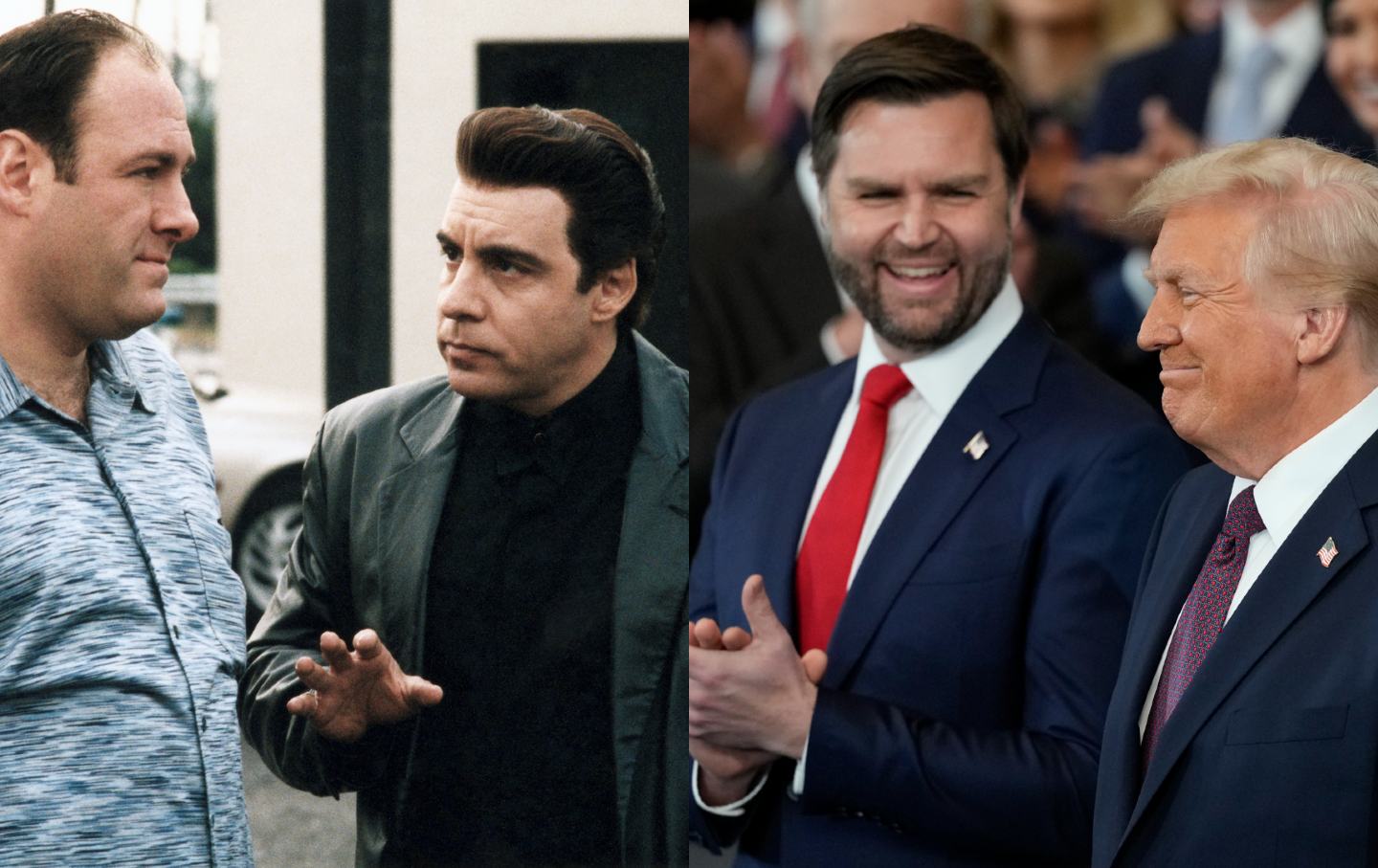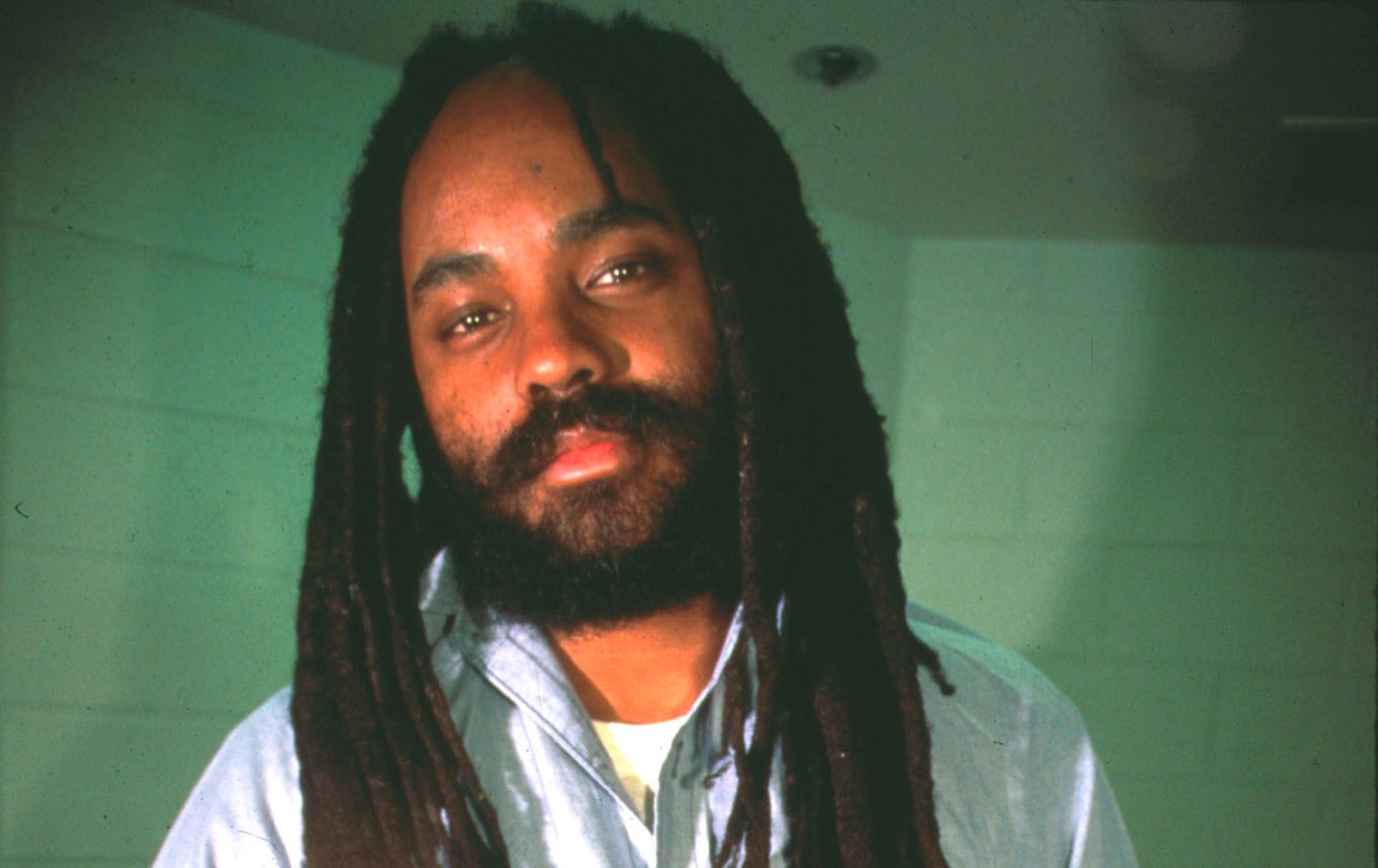The First Thing We Should Remember About the Super Bowl Is the Massacre
During the year’s biggest television event in the US, Israel launched an attack on Rafah, hoping Americans wouldn’t notice. Now, the strikes are part of NFL history.
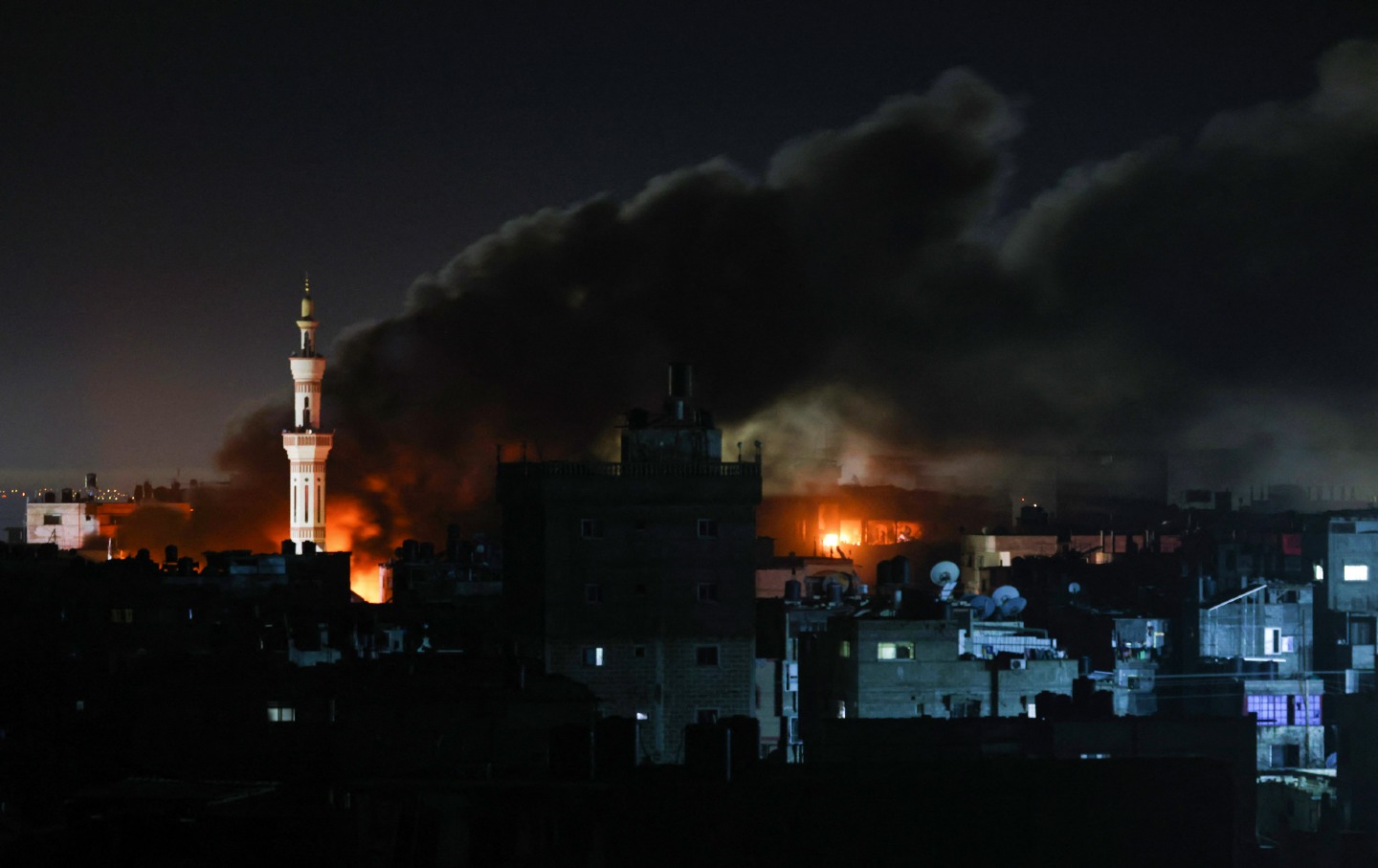
This year’s Super Bowl was a weapon of mass distraction. If there’s any justice, future generations will remember the game not for Patrick Mahomes, Travis Kelce, or Taylor Swift but for the US-funded attacks on Palestinian civilians that occurred while so many Americans were glued to their TVs. During the game, watched by well over 100 million people in the United States, Israel launched a bombing raid of Rafah in the Gaza Strip, the most densely populated area on earth. More than 1 million people had fled now-leveled Gaza City to the refugee camps in Rafah and surrounding areas. Palestinians who have survived previous Israeli strikes are now staving off disease, destitution, and fear. They, along with people throughout the world, had been hoping for a negotiated cease-fire. The Israeli government and Prime Minister Benjamin Netanyahu feinted to take this idea seriously, but instead, as football players battled in Las Vegas, rained death from the skies.
As of now, the Gaza Health Ministry estimates that Israel killed at least 67 Palestinians in the Super Bowl attacks. That doesn’t account for the number injured or the attendant trauma. Ghada al-Kurd, who was sheltering in Rafah, told The New York Times, “I swear to God it was an indescribable night.… The bombing was everywhere—we were convinced that the Israeli army was invading Rafah.” The Israeli government is crowing of victory after freeing two hostages. And much of the US media is following suit, relegating the deaths of Gaza civilians to a footnote.
Meanwhile, CBS granted the Israeli government space for an ad about the 130 hostages left in Gaza. This ad, meant to build public support and justify the slaughter of nearly 30,000 civilians in Gaza, spurred 10,000 people to register complaints with the FCC, because the commercial did not disclose that a foreign government had paid for it. Coupled with the Rafah raid, this looks more like military synergy than happenstance.
New England Patriots owner Robert Kraft also spent $7 million on an ad from his organization Foundation to Combat Anti-Semitism. It features Clarence Jones, a 93-year-old former speech writer for Dr. Martin Luther King Jr. Kraft and other pro-war billionaires use the memory of King so much, they should be paying his family indulgences for slandering his name. The ad failed to mention that Kraft has given $1 million to pro-war AIPAC and donated $1 million in 2016 to Donald Trump’s inauguration. Given that Kraft says that the Nazi march in Charlottesville was his motivation to start his foundation (Charlottesville was the one with “good people on both sides,” according to Trump), his hypocrisy is insidious.
Kraft and Israel want the same thing: a blank check to uproot Palestinians from Gaza and build settlements. One can also only imagine if a peace organization tried to buy an ad asking Israel and the United States the question: “How many dead children will be enough?” I suspect it would be denied faster than a public-service announcement about concussions.
Outside of the United States, the broad perception is that the hostages, the pain of their families, and the Hamas killings of October 7 are both a tragedy and a fig leaf to justify a total war on the civilian population of Gaza and a seizure of land. But the Israeli government treats global opinion outside the US as irrelevant. It knows that there is really only one patron needs to be appeased, and that is the sponsor sending them billions of dollars in weaponry. The sponsor is not just Biden and the US Congress; it is the US taxpayer. This is why the Super Bowl cover for this latest atrocity was so important. Israeli government officials know that US dissent is an obstacle to achieving their fantasy of controlling the land “from the river to the sea.”
We don’t know if the White House gave the go-ahead for what has now been dubbed “the Super Bowl massacre,” but if you launch an attack during the biggest TV event of the year—blunting an emergency response by US demonstrators and hoping that everyone will be too hung over, drunk on commercialism, and gambling apps to give a damn—it doesn’t take a poli-sci major to see how Biden benefits.
The Super Bowl has been used as a driver of war in the past, most famously when Whitney Houston sang the national anthem in 1991 as war planes flew overhead in the lead-up to Operation Desert Storm and when U2 and Bono fanned the flames of post-9/11 America in 2002. Now we have “the Super Bowl massacre,” which was designed to make us not notice the war crimes that American taxpayers are funding. The attacks on Rafah should become a bigger part of football history than reaction shots of Taylor Swift, Usher’s roller skates, or even Patrick Mahomes’s late-game heroics. Whether a football fan or not, we have to do more than never forget. We must say “never again.”
Disobey authoritarians, support The Nation
Over the past year you’ve read Nation writers like Elie Mystal, Kaveh Akbar, John Nichols, Joan Walsh, Bryce Covert, Dave Zirin, Jeet Heer, Michael T. Klare, Katha Pollitt, Amy Littlefield, Gregg Gonsalves, and Sasha Abramsky take on the Trump family’s corruption, set the record straight about Robert F. Kennedy Jr.’s catastrophic Make America Healthy Again movement, survey the fallout and human cost of the DOGE wrecking ball, anticipate the Supreme Court’s dangerous antidemocratic rulings, and amplify successful tactics of resistance on the streets and in Congress.
We publish these stories because when members of our communities are being abducted, household debt is climbing, and AI data centers are causing water and electricity shortages, we have a duty as journalists to do all we can to inform the public.
In 2026, our aim is to do more than ever before—but we need your support to make that happen.
Through December 31, a generous donor will match all donations up to $75,000. That means that your contribution will be doubled, dollar for dollar. If we hit the full match, we’ll be starting 2026 with $150,000 to invest in the stories that impact real people’s lives—the kinds of stories that billionaire-owned, corporate-backed outlets aren’t covering.
With your support, our team will publish major stories that the president and his allies won’t want you to read. We’ll cover the emerging military-tech industrial complex and matters of war, peace, and surveillance, as well as the affordability crisis, hunger, housing, healthcare, the environment, attacks on reproductive rights, and much more. At the same time, we’ll imagine alternatives to Trumpian rule and uplift efforts to create a better world, here and now.
While your gift has twice the impact, I’m asking you to support The Nation with a donation today. You’ll empower the journalists, editors, and fact-checkers best equipped to hold this authoritarian administration to account.
I hope you won’t miss this moment—donate to The Nation today.
Onward,
Katrina vanden Heuvel
Editor and publisher, The Nation

